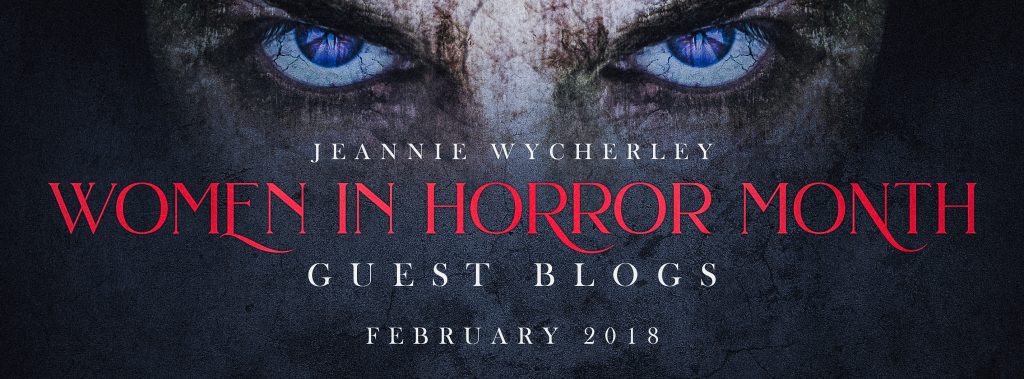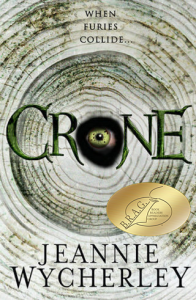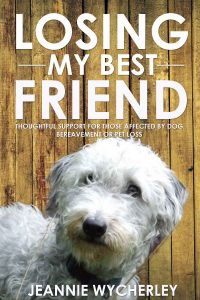
That’s not to say that Trent isn’t perfectly adorable. He’s intelligent, brave, thoughtful and supportive, but he’s also the non-believer, preaching caution when Heather has wild ideas, and when her desire for revenge starts to burn her up inside. They make a good couple – the perfect yin and yang.
Fortunately, there are two other men in Heather’s life who balance Trent’s influence, otherwise Crone may have been a very different story and genre! The first is her dead teenage son, Max. At the beginning of Crone, Heather has largely disassociated herself from the world, and her bereavement has alienated her from any pleasures in life. The third relationship, and perhaps the most important to her when the novel opens, is Pip, her aging and scruffy lurcher dog.
I have several friends who have suffered the loss of a child or children. How do I know them? Through our mutual love of dogs. Observing from a distance, I feel that their dogs have given them a reason to carry on. Pets in this instance are not a substitute for children by any means, but they provide a necessary outlet for love.
As humans, most of us have an infinite capacity to give love in one form or another. When the life of someone you care about is wiped out, you find yourself floundering around, unsure of how to define yourself (a child who loses her parents is an orphan, but parents who lose children? What name do we give them?). In addition, society loses interest in the bereaved after a while, and we politely ignore ongoing sorrow. In the UK, we expect our emotionally wounded to ‘keep calm and carry on’. Outwardly, in Crone, Heather is coping, but really all she is doing is putting one foot in front of another … and remembering to breathe.
Pip gives Heather a two-way conduit for her love. He provides a reason for her to get up in the morning. By get up, I don’t mean wake up – note, because Heather doesn’t sleep. She lies awake wondering why her son is dead and she is alive. Pip is the reason Heather visits the supermarket. He needs to eat, so she’s shopping for him, but then she remembers to buy food for herself too. Pip helps Heather to bond with Trent, because Pip is ecstatic when Trent is around.
In the first draft of Crone, Pip didn’t make it through a particularly horrible encounter in the forest, but in the end I couldn’t do that to Heather. It just felt too unnecessarily cruel, and besides I’m a soft touch. It was a good decision in retrospect because a number of readers have told me how much they worried about him, and loved his presence in the story.
Beautiful Pip was based on my own Bedlington Terrier X Lurcher, Herbie. When I began writing Crone, Herbs, my constant companion, was alive and well and always under my desk, nudging my knee when he wanted my attention. By the time I’d published it, he was gone prematurely. It seemed fitting that I memorialise him in Crone, as a remembrance of one of the important relationships in my own life, as well as Heather’s.
I struggled so badly with the loss of Herbie that I wrote a book that was part tribute, and part support for others affected by dog bereavement. Losing my Best Friend is my most consistent seller, and every copy sold makes me eternally proud of my beautiful boy.
Happy Valentine’s Day canines everywhere ❤
Useful links
Buy Crone myBook.to/CroneJW
Buy Losing my Best Friend myBook.to/LosingMyBestFriend
Follow me:
https://twitter.com/Thecushionlady
https://www.facebook.com/jeanniewycherley/




Recent Comments